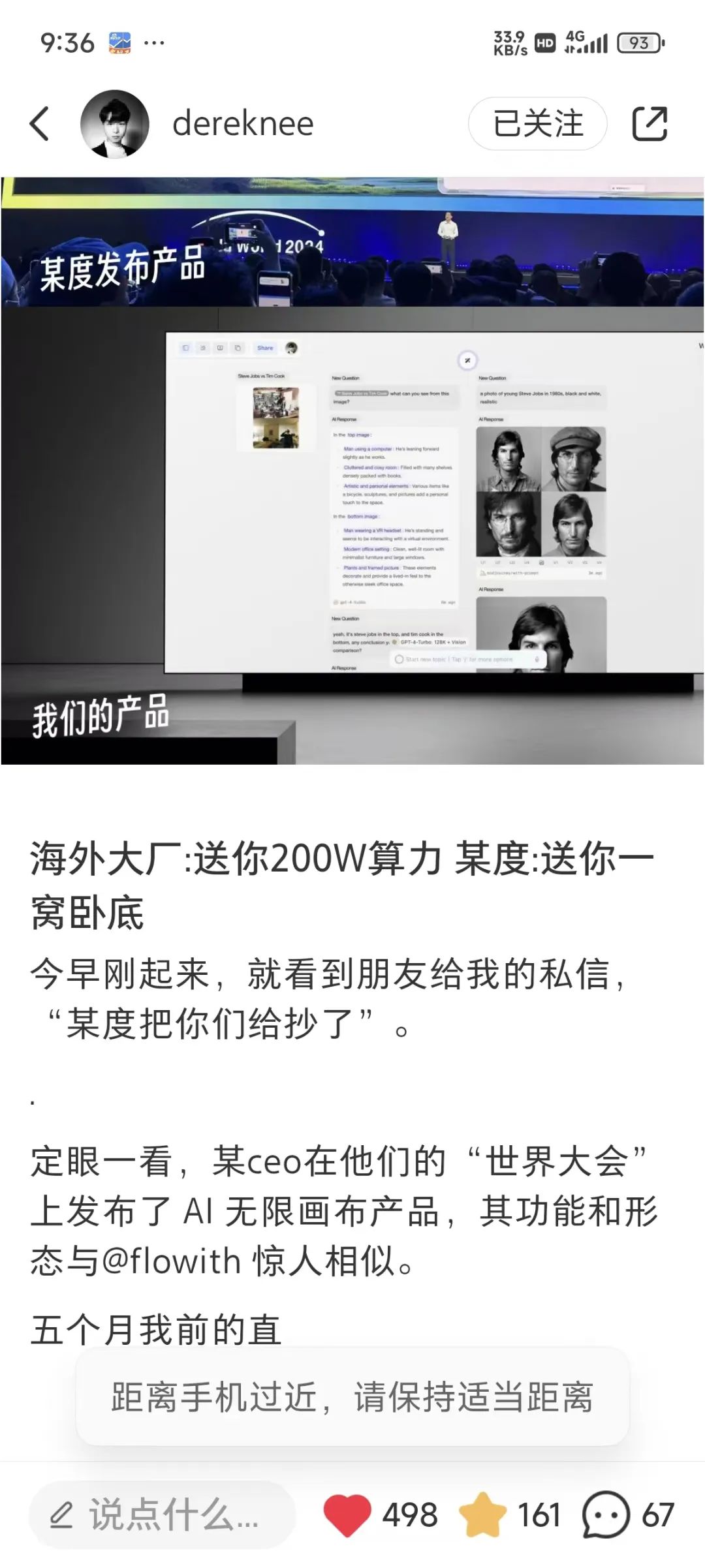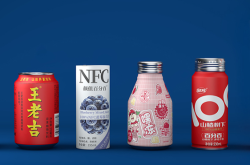Baidu accused of plagiarism by a startup: Rights protection or scam?
![]() 11/14 2024
11/14 2024
![]() 503
503


The plagiarism accusation has sparked heated debate among netizens, with some supporting the startup's stance and others arguing that similar interface designs among tool-type products are common in the industry.
@TechNews Original
The annual Baidu World Conference has just concluded, but a startup has stepped forward to publicly accuse Baidu of plagiarizing its product!
On October 13, Derek, the founder of AI startup Flowith, posted on a social media platform claiming that Baidu's AI Free Canvas product, unveiled at the World Conference, bears striking similarities in functionality and form to Flowith, providing a series of images as evidence.

Source/Screenshot from Xiaohongshu
In his post, Derek mentioned that five months ago, his company participated in an overseas AI startup competition hosted by Baidu and submitted a business plan. However, during the subsequent online meeting, he felt something was amiss as the questions posed were overly technical and detailed, culminating in a direct inquiry about their response if a major company were to plagiarize them.
The product accused of plagiarism is Baidu's newly launched content operating system, "Free Canvas," jointly introduced by Baidu Wenku and Baidu Netdisk. It allows for summarizing the main ideas and referencing frameworks of files in various formats. Users can freely drag and drop materials on an interface resembling a "canvas," issue commands, and select content to quickly obtain AI-generated new content and creations.
At the conference, Baidu's founder, chairman, and CEO Robin Li introduced the product as follows: "'Free Canvas' is a versatile whiteboard empowered by ERNIE Bot's multimodal large model. It inspires boundless creativity and allows everyone to become a cartoonist or short video director."

Currently, "Free Canvas" has officially opened test reservations to the public.
Finally, Derek stated in his post that the current online version of Flowith was designed a year ago, and what Baidu copied was their early, immature product form. They will soon release a brand-new version 2.0.
Notably, 60% of the copywriting in this post was written by Flowith 2.0. Despite Derek's righteous tone, he did not provide more specific details of the plagiarism in his post. While some netizens in the comment section showed solidarity, others remained rational, pointing out that high similarity in user experience (UE) among tool-type products is normal and that the underlying algorithmic logic needs to be examined for a definitive judgment.
It is understood that Flowith is an innovative AI interactive tool. The company was founded in June 2023 and is headquartered in Shanghai. Its product entered public beta testing on April 18 this year, attracting about 20,000 new users within a week of its launch. As of June this year, it has provided AI-generated content experiences to nearly 100,000 global users and has completed a new round of funding.

Derek, the protagonist of this accusation, is the founder of Flowith and an AI product manager. He graduated with full scholarships from a liberal arts college in the United States and previously founded XACADEMY Explore the Future (a youth summer program). His Xiaohongshu profile features Flowith-related content, and he stated in the comments that the company currently only operates overseas and has achieved self-sufficiency.
Whether plagiarism exists remains controversial.
Some argue that the ERNIE Bot platform has already established a workflow for the canvas style within the agent's underlying structure. Regarding plagiarism accusations, it is essential to distinguish between the user interface (UE) and functions tailored to specific needs and scenarios. If it's at the interface level, the ERNIE Bot platform already has similar functionalities, and this design may have originated from open-source large language model (LLM) application development platforms like Dify.
Regarding functionality, as generic solutions are widely adopted in the industry, the claim of plagiarism is difficult to substantiate.
True plagiarism should refer to proposing innovative solutions in specific scenarios (such as video editing) that significantly enhance efficiency and creativity, leading others to imitate due to the lack of better alternatives. Therefore, accusations of plagiarism require a more detailed comparative analysis of the two products in terms of functionality, interface design, and other aspects.
Regarding specific evidence of plagiarism, TechNews has repeatedly attempted to contact Derek, the founder of Flowith, but had not received a response as of press time.
It is worth noting that this is not the first time Baidu has been accused of plagiarism, as several of its previous products have also been embroiled in similar controversies.
For example, Baidu Translation was accused by Youdao Translation of plagiarizing UI design, service processes, and page copywriting, with some pages sharing up to 95% similarity. Youdao even issued a statement on Weibo. Dianping also sued Baidu Map and Baidu Zhidao for mass plagiarism of user reviews and providing content to users instead, resulting in Baidu paying compensation of 3.23 million yuan.
Additionally, netizens have pointed out the high similarity between "ERNIE Bot" and the "Xiaofamao" AI writing tool, with some code being identical, sparking widespread concern.
- The end -






